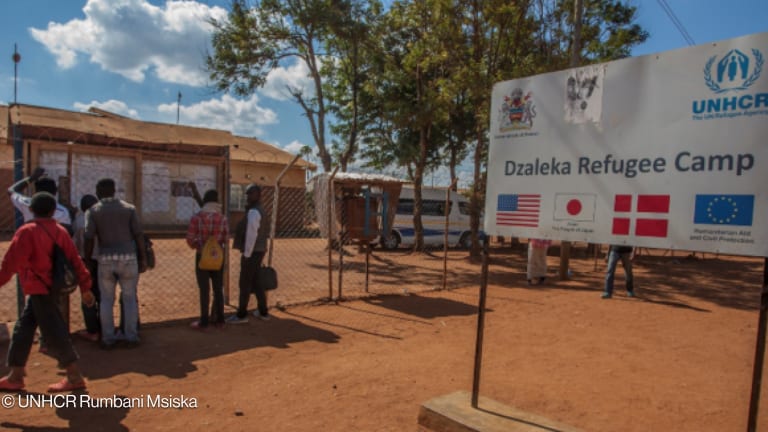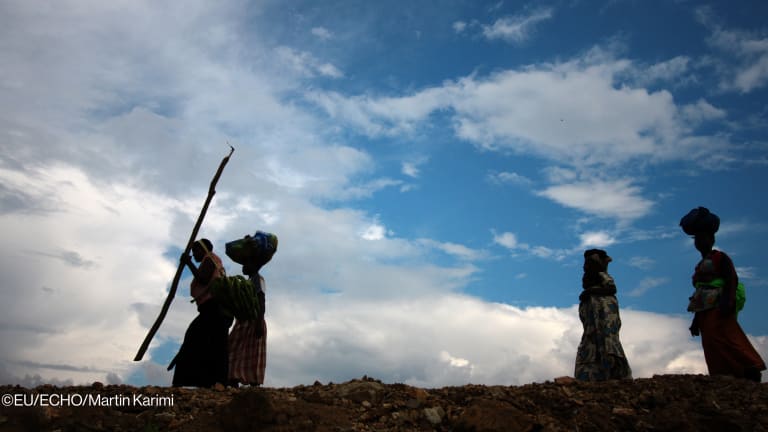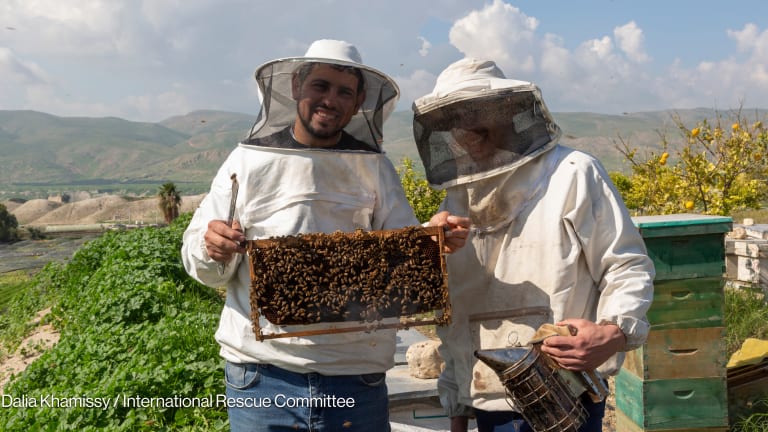
When children arrive at refugee camps in Greece — having fled difficult conditions and experienced trauma en route to Europe — many are already suffering mental health problems.
Once they arrive, abject living conditions in the camps can exacerbate that, triggering worrying behaviors, experts on the ground told Devex. An alarming number of children in the camps are expressing suicidal ideations or regressing as a result of their deteriorating mental health, they said.
In a country where there is already a shortage of child psychologists, some organizations are turning to structured play and creative activities as increasingly important tools in helping these children process their trauma and develop coping mechanisms. A recent study on the use of group “theraplay” to help refugee children in Turkey found that this approach improved post-traumatic stress and helped overcome language and cultural barriers.
“Through play, we can work through the trauma, we can find coping strategies, we can process and heal … for a second they can forget the hardship they're living in.”
— Katrin Brubakk, mental health activity supervisor, MSFWhile there has been little research around the success of the approach in less stable settings, staff working in and around the camps in Greece said it is particularly useful in supporting young children there.
Médecins Sans Frontières provides psychosocial support to children on the island of Lesbos, home to the Moria refugee camp which was damaged by a major fire last year. From a makeshift clinic, the organization runs individual and group therapy sessions for any child referred to them by the medical experts or other NGO staff working inside the camp.
Katrin Brubakk, mental health activity supervisor for the children’s clinic, said that staff see a whole range of symptoms and behaviors — some children start bed-wetting or sucking their thumb again, while others struggle to regulate their emotions and easily become upset or aggressive. For most, these behaviors only begin upon arrival at the camp where living conditions are particularly poor and, with no access to formal schooling, the children have no sense of routine, she said.
There are also more severe cases.
“We have children who haven't been speaking for eight months — not a single word. [They are] totally disengaged in life, they don't talk, don't move, don't play,” Brubakk said.
When Devex spoke to Brubakk, she had already been notified of two cases of attempted suicide in the camp that week — in separate incidents, a 13-year-old boy and a 15-year-old girl had tried to take their own lives. MSF recently reported that last year, their child psychologists treated 49 cases of suicidal ideation and suicide attempts among children on the Greek islands.
Meanwhile, children living in accommodation centers on the mainland, where conditions vary but are generally slightly better than those on the islands, are anxious, scared, and isolated. Overcrowding and additional restrictions in the last year due to COVID-19 have led to clashes between residents, triggering post-traumatic stress disorder and an increase in bed-wetting, even in older children, said Christiana Kyrkou, program coordinator with Solidarity Now, an organization that provides child and family support hubs and psychosocial support for refugees.
The psychologists aboard Sicily's refugee ships
On four quarantine ships docked in Sicily, a small team of psychologists is working to support migrants stuck in limbo.
The children have also experienced trauma long before arriving at the camps. “About 78% of them have lost a loved one and they’ve witnessed parents being assaulted or sexually abused during the journey, being threatened by smugglers,” Brubakk said.
Some have witnessed boats capsizing and people drowning. Young unaccompanied girls may have been sexually abused trying to access housing or transport. “There's trauma upon trauma,” Brubakk added, and therapeutic play is important, especially for the younger children, in helping process that.
“Through play, we can work through the trauma, we can find coping strategies, we can process and heal,” she said, “and we can also give them a break in the sense, that for a second they can forget the hardship they're living in.”
For example, games with figurines in which there are different scenarios and outcomes can give children a sense of hope and possibility, Brubakk explained. Other activities can teach them how to relate to other people and regulate their emotions, how to cope in stressful situations using relaxation techniques, or how to ask for help.
Kyrkou added that structured play activities can help children develop basic social and cognitive skills and build resilience, for example, through games that help them recognize their own strengths. Before the pandemic, her team had been focusing on school enrollment and providing support in those settings. Now, with COVID-19 confinement measures excluding the children from school, they are deploying play-based activities that were initially designed to support refugee children on the move.
But activities need to be carefully thought through and even common childhood games may need to be adapted. For example, hide and seek is avoided since it can be a trigger for children who have witnessed war. In recent activities, children have used Lego to measure each other's heights, build their dream homes, or re-create the camp and mark out areas of it that they don’t feel positively about, Kyrkou said.
A creative approach can also be used to support older children, with activities involving music, film, or discussions. Participation is a key principle of design for this age group.
“It’s very important to give the group a choice of what they want to do [each] day and use techniques such as voting among two or three options,” Kyrkou said. “This is actually helping them have a voice and it helps ... at a later stage if there is something [they want] to disclose,” she added.
By facilitating disclosure through activities for all age groups, Kyrkou’s team can flag child protection issues, including where the child might be the victim of sexual or gender-based violence, which has increased across the camps during the lockdowns.
Involving parents, where possible, is also important and MSF runs groups to teach them about child psychoeducation. This can help them better understand what their child is going through and practice calming and coping mechanisms with them, such as singing to them before bed, Brubakk said, adding that she has been impressed by the cooperation and capacity of parents in such circumstances.
The conditions of the camps, however, stifle the healing process and subject the children to continuous trauma, the experts agreed.
Since the fire in Moria, there have been several reports of children sleepwalking, in some cases towards the sea, because they are reliving the experience and trying to get to safety. “The frustrating part is that even if we were able to stabilize [them] a bit, able to save lives, able to create some hope ... we still have to send them back to the condition that makes them sick,” Brubakk said.








